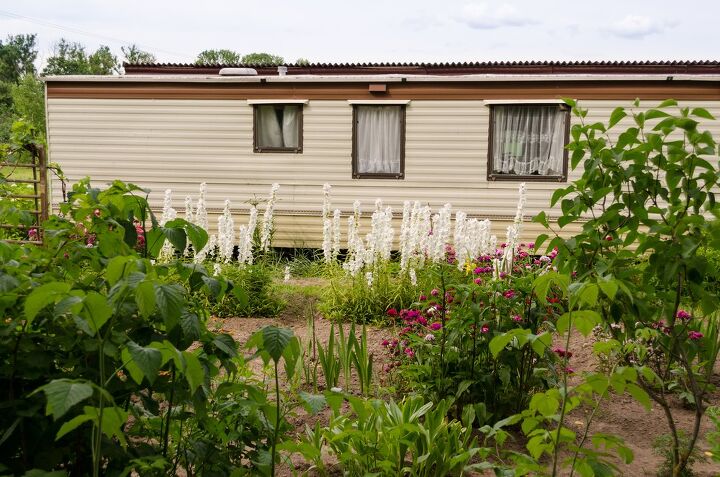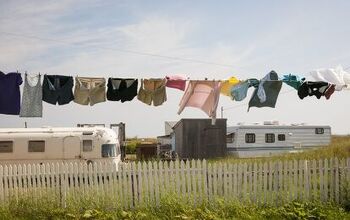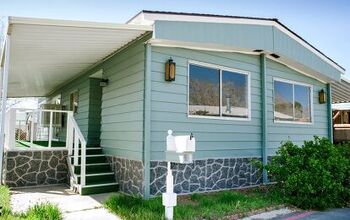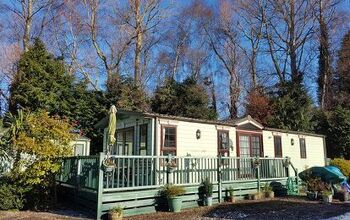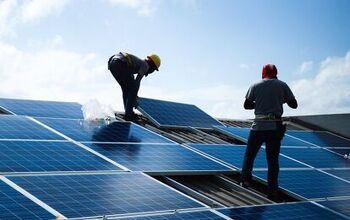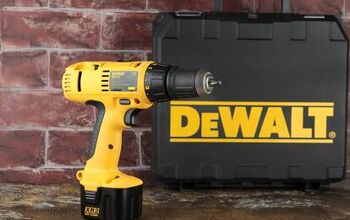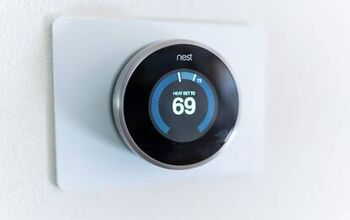Can I Put a Mobile Home on My Parents' Property? (Find Out Now!)

You have reached that age where you are ready to be out of your parents’ house, but really, you aren’t ready to be too far away from them. You have hashed it out repeatedly in your mind, and you’ve decided that what you’d like to do is put a mobile home on your parents’ land. However, you don’t even know whether you can do that.
In many cases, you can put a mobile home on your parents’ land, but you must first have permission. Your mobile home must have a foundation. You will need to acquire a building permit and ensure you meet all zoning requirements. Also, your mobile home must be constructed to the standards of the National Manufactured Housing Construction and Safety Standards.
Do You Need a Permit Service?
Get free, zero-commitment quotes from pro contractors near you.

Am I Allowed to Put a Mobile Home on My Parents’ Property?
While putting up a mobile home on your parents’ property does require a lot of planning, it can be just the situation you need, because of the proximity to your parents but also, the property taxes. With your parents’ permission, you can usually put a mobile home on their property.
You will need to fasten it to a foundation, but first, you will be required to get a building permit and ensure all zoning requirements are met. Both state and federal laws declare that your mobile home be constructed to meet the National Manufactured Housing Construction and Safety Standards. You will also need to plan for a water supply, such as a well or city water hookup, electricity supply, and waste management service.
Can I Be Evicted From My Mobile Home on My Parents’ Property?
Yes, you can certainly be evicted from your mobile home on your parents’ property. If they evict you, or if they die and the land goes to someone else, and they evict you, you must leave the property. However, you will have “x” number of days to move your mobile home off the property if it is in your name.
You may choose to fight the eviction, and if you do, here are some factors that will matter:
- If your parents died, do you have any written proof that they promised the land your mobile home sits on to you in the event of their death?
- Did you make any improvements to the real property at your own expense that benefited them and increased the value of their it? (e.g., service road, well, septic system)
- Have you paid any of the property taxes on the land belonging to your parents, and do you have canceled checks or receipts for proof?
- Have you paid liability insurance or utility bills for their home (not just yours), and do you have canceled checks or receipts for proof?
Of course, the easiest thing to do would be to have the discussion with your parents right now about what would happen if they died. All kinds of legal entanglements could form. If you have other siblings, they can contest you just inheriting the land, unless it is clearly spelled out in your parents’ will.
Can I Put a Mobile Home on My Property?
In order to put a mobile home on your own property, you must consider zoning regulations, state regulations, and restrictions by private covenants.
Zoning Regulations
The appearance and size of your mobile home are what zoning regulations regard. You need to find out what the zoning regulations are in the area where you live before you choose a home. If not you may choose, say, a mobile home that is too large for your land plot. Contact a zoning administrator in your area for information.
State Regulations
State regulations point to the legal requirements of installing a mobile home. For one thing, you will need a building permit. Then, you will need to lay a foundation before your home is delivered to your home site. Once attached, it becomes a manufactured home. Your home must be constructed to meet the National Manufactured Housing Construction and Safety Standards, meeting specific size requirements and using specific materials in certain areas.
Investigate state law, as well as city or county building codes early on in this process, as different regulations may apply to each city in each state. Consult building code enforcement for the city or county before moving too far along with your project.
Can I Rent Out a Mobile Home on My Land?
You can put a mobile home on your own land and rent out the home and land. You can also purchase a mobile home, place it in a mobile home park, and rent it out. However, there are pros and cons to using mobile homes as investments by renting them out.
Pros
There is one good reason to invest in mobile homes for rentals – low cost. While some brand new mobile homes can cost as much as traditional homes, used mobile homes can be purchased for a miniscule price. Plus, a low initial cost makes way for a high return on investment. It is certainly much less costly than building a traditional home.
Cons
There are a few cons to consider, though:
- Mobile homes depreciate, not appreciate.
- If you rent out of a mobile home park, lot rent is expensive.
- Mobile homes require more and more maintenance over time.
While it can be hard to procure financing for a mobile home purchase, that is usually for a brand new home. You can probably save for a used mobile home.
Do You Need a Permit Service?
Get free, zero-commitment quotes from pro contractors near you.

Related Questions
How Many Mobile Homes Can You Put on 1 Acre of Land?
The legal number varies from one local to another, but the number of single-wide mobile homes that you can put on 1 acre of land is around 9. Each local municipality decides what this maximum number will be for that area.
How Many Acres Do You Need for a Mobile Home?
To buy enough land for a mobile home, you need to buy enough land for the mobile home, plus, several feet around it in every direction. Generally, mobile homeowners need to purchase at least 1/4 acre of land for 1 single-wide mobile home. When buying land for a mobile home, though, you must also consider how viable or suitable the land is for building on and drilling a well.For instance, is it in the middle of a flood plain? Are utilities set up on the property? Is there an electric meter present with at least 200-amp service? Is there a freshwater supply? Is there wastewater treatment service? Is there natural gas service?
Related Guides

We are a team of passionate homeowners, home improvement pros, and DIY enthusiasts who enjoy sharing home improvement, housekeeping, decorating, and more with other homeowners! Whether you're looking for a step-by-step guide on fixing an appliance or the cost of installing a fence, we've here to help.
More by Upgraded Home Team



